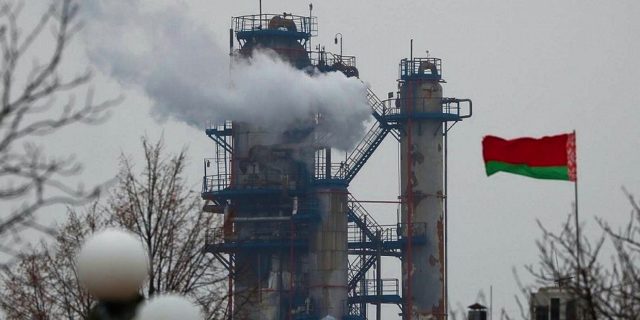
Russians One Step Closer to Taking Over Handling of Belarusian Oil Product Exports?
Publication: Eurasia Daily Monitor Volume: 18 Issue: 23
By:

On January 25, the government of the Russian Federation adopted a draft version of a bilateral agreement with Belarus on the diversion of some Belarusian refined oil product exports from the Baltic States’ transshipment terminals to Russian seaports (TASS, January 27). At first glance, the move looks like a breakthrough, as, until now, the details of the months-long negotiations between the two countries (see EDM, September 21, 2020 and January 7, 2021) were not directly communicated to the public. However, this potential Russian-Belarusian agreement still has to be ultimately accepted and signed, and Minsk may not be as eager to do so as the Kremlin. Yet if the two sides do reach a final agreement, the negative economic consequences to neighboring Lithuania and Latvia could be significant.
According to the presented draft document (Pravo.gov.ru, January 25), the volume of Belarusian oil products that are to be handled by the Russian transshipment terminals should be annually agreed by the parties. However, the unsigned agreement also proposes that the two sides set up an “indicative” framework in that regard. In reality, it should be assumed that the solution here will likely work as in the case of Russian crude supplies to Belarus refineries. That is, both countries are presumably agreeing to some “indicative” volumes of oil for a multi-year period, but the exact level of imports will nonetheless be reviewed every single year, subject to current business and political circumstances.
In general, the agreement is to be valid until the end of 2023, and the “indicative” oil product volumes are proposed to be set at 3–3.5 million tons per year. At the same time, the draft-detailed schedule for cargo transshipment in 2021 reveals that between March and December, the Russians could handle around 2 million tons of Belarusian fuels and oils. This suggests that the agreement, if eventually signed, would lead to the almost full withdrawal of Belarusian oil product exports from Lithuania’s Klaipėdos Nafta transshipment terminal.
No less importantly, the draft version of the agreement also specifies the general business conditions (including transshipment and railway freight tariffs) that should be valid until the end of 2023. That is especially significant since the Belarusian side specifically presented this aspect as the main necessary precondition to signing a deal. In principle, the transit of Belarusian oil products via Russian seaports should not be competitive against exports through the better-located terminals in the Baltic States. The latter are physically closer to the Belarusian refineries, and the ports offer a shorter route for incoming and outgoing tankers, among other advantages. But now, with the more attractive tariff regime offered by Russia under the draft agreement, the commercial situation changes to some extent.
The text of the draft agreement was not commented on by the Belarusian side as of its publication on January 27. However, Belarus’s Prime Minister Roman Golovchenko had been discussing the issue with his Russian counterpart only one day before, stating that the two countries will sign the document “in the nearest future” (Belta.by, January 26). Similarly, Russian government officials have also not made additional remarks on the issue yet. Therefore, it remains unknown when exactly the agreement could ultimately be signed by both parties and whether any of its provisions still require further negotiations.
Even though the draft document covers only the diversion of some Belarusian oil product transit and does not mention any other categories of exports, the agreement, if signed, is likely to spark heavy concern in the Baltic States. This particularly applies to Lithuania and Latvia, whose seaports are heavily dependent on the transit of Belarusian goods. Belarusian cargoes account for around 30 percent of the total handling volume in both countries (see Jamestown.org, May 29, 2020). In light of current political developments in Belarus and Russia, no one can assure that Moscow will not push, in the next years, to divert the transit of another category of Belarusian goods to Russian ports and away from the Baltic States.
Indeed, such a scenario has already been suggested in recent weeks by Russian Railways’ representative Alexei Shilo, who disclosed that the two countries are discussing the diversion of Belarusian potash fertilizers, too (Interfax.by, February 1). Moreover, given the extent to which President Alyaksandr Lukashenka’s regime has lost legitimacy in the eyes of some influential Western countries, the Belarusian leader may have little choice but to more fully rely on the Kremlin’s support if he wants to prop up his country’s economy and to remain in power.



